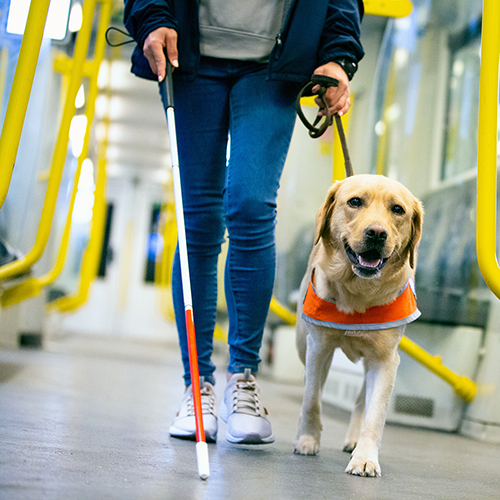Accessibility FAQs
Read frequently asked questions about accessibility.


Frequently Asked Questions
How do I give feedback?
Wa-Tech is the state agency that manages the standards of state agency information technology (IT).
If you want to give input to our Accessibility Plan, please email access@equity.wa.gov with the subject line “Access Plan.” As technology is always changing and community needs can shift over time, we too believe that our approach must evolve over time and for that reason your feedback is needed – what to keep the same, what to take out, and what to add.
If you want to let us know how you’re finding our website and alert us to any areas of potential improvement, please know we take this feedback seriously and have altered our future documents, forms, newsletters, events, thanks to feedback from state employees and the public.
What is USER-01, formerly known as Policy 188?
Washington state’s USER-01 Policy establishes the expectation for state agencies that people with disabilities have access to and use of information and data and be provided access to the same services and content that is available to persons without disabilities, unless providing direct access is not possible due to technical or legal limitations.
Ongoing Training
We recognize that people have a variety of exposure to digital accessibility and accessibility in general. We take seriously finding what tools, training, and resources are needed to further accessibility. We also recognize that many teams and agencies have smaller offices, or may be new teams entirely, such as ourselves. As we build the road, we seek to create pathways so we are intentional about what we do with our limited capacity AND prioritize to meet the needs of people with disabilities.
Potential Limitations
Many of the existing softwares or technology that are used by the Washington State Government were obtained before Digital Accessibility was part of the requirements. Therefore we will make every effort to create an accessible piece of content, but there may be limitations due to the vendor that controls that product. In that case, we will check with you and see what the solution, such as an alternate document, could be.
Accessible Technology
In today's world, we use a variety of technologies to communicate with each other. Some call these technologies "Information and Communication Technologies." As an office seeking cutting-edge solutions to address the need for equity in state government, we will develop a process to examine potential technologies for their digital accessibility, to ensure an accessible experience for our community.
Thank you!
We are building many things from the ground up, or may be the first of their kind, so we appreciate your input in building our vision. We produce a lot of innovative content with a small Communications Team! We thank you for engaging and working with us as we create an accessible and equitable future for Washingtonians, together.
